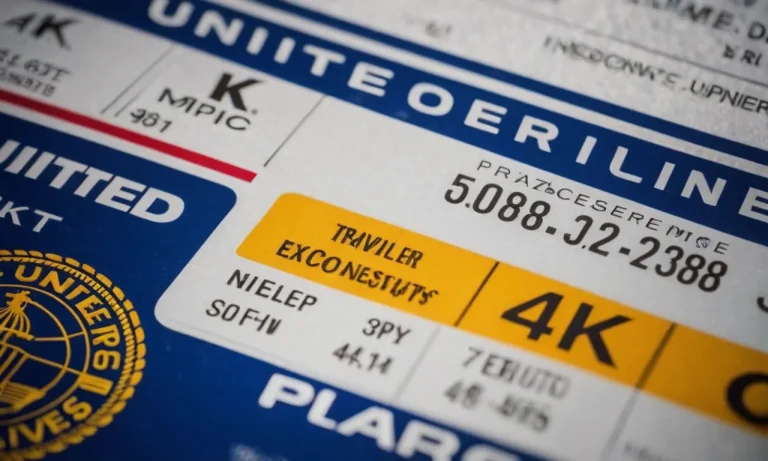If you’re looking for a stable career that provides an essential service to the community, being a bus driver may be right up your alley. Driving a bus requires a commercial driver’s license (CDL), on-the-job training, and experience navigating traffic and transporting passengers safely.
But is it a good job? Here’s a comprehensive look at the pros and cons of being a bus driver.
In this guide, we’ll explore all aspects of the job so you can decide if it’s a good fit for you. We’ll look at the earnings potential, required skills and training, job duties, work schedule, job outlook, and more.
We’ll also compare bus driving to similar jobs like truck driving and taxi driving. By the end, you’ll understand the day-to-day realities of the job so you can make an informed decision about whether it aligns with your career goals.
The Pros of Being a Bus Driver
Competitive Salary and Benefits
One of the major advantages of being a bus driver is the competitive salary and benefits package that comes with the job.
Bus drivers are typically paid a decent wage, and many companies offer additional perks such as health insurance, retirement plans, and paid time off.
Variety of Employers and Job Settings
Another benefit of being a bus driver is the variety of employers and job settings available. Bus drivers can work for public transportation systems, private bus companies, schools, and even tour companies.
This means that individuals interested in becoming bus drivers have a range of options to choose from and can find a job that aligns with their preferences and interests.
Job Security Due to Demand
Bus drivers enjoy a high level of job security due to the ongoing demand for public transportation services. As long as people rely on buses to get around, there will be a need for bus drivers.
This can provide peace of mind and stability for those in the profession, knowing that they are unlikely to face widespread job cuts or layoffs.
Flexible Schedules
Flexibility is another advantage of being a bus driver. Many bus companies offer flexible schedules, allowing drivers to choose shifts that work best for their personal needs.
This can be especially beneficial for individuals who have other commitments, such as family responsibilities or part-time jobs.
Opportunity to Serve the Community
Being a bus driver also provides an opportunity to serve the community. Bus drivers play a crucial role in ensuring that people can travel safely and efficiently.
They help commuters get to work, students get to school, and tourists explore new places.
Being able to contribute to the well-being and convenience of others can be highly rewarding and fulfilling.
The Cons of Being a Bus Driver
Long Hours and Irregular Shifts
One of the major downsides of being a bus driver is the long hours and irregular shifts that come with the job. Bus drivers often have to work early mornings, late nights, weekends, and even holidays.
This can make it challenging to maintain a regular sleep schedule and have a social life outside of work.
Additionally, the long hours spent sitting behind the wheel can be physically tiring and mentally draining.
Stressful Working Conditions
Being a bus driver can be a stressful job due to various factors.
- Firstly, traffic congestion and unpredictable weather conditions can make driving a bus more challenging and increase the level of stress.
- Secondly, bus drivers have the responsibility of safely transporting passengers, and any accidents or incidents that occur on the bus can be emotionally taxing.
Lastly, dealing with unruly or difficult passengers can add to the stress levels of a bus driver.
Licensing Requirements
Becoming a bus driver requires obtaining a commercial driver’s license (CDL) and meeting specific licensing requirements set by the state or country.
These requirements can vary, but typically involve passing a written test, a skills test, and a medical examination.
The process of obtaining a CDL can be time-consuming and costly, and failure to meet the requirements can result in disqualification from the profession.
Physical Demands
Being a bus driver can be physically demanding. Bus drivers are required to sit for long periods, which can lead to back pain and other musculoskeletal issues.
They are also responsible for assisting passengers with disabilities, which may involve lifting and maneuvering heavy mobility aids.
Additionally, the constant focus and attention required while driving can lead to eye strain and fatigue.
Dealing with Difficult Passengers
Bus drivers have to deal with a wide range of passengers on a daily basis, and not all of them are pleasant. They may encounter rude, aggressive, or even intoxicated individuals who can make their job more challenging.
Handling such situations requires patience, excellent communication skills, and the ability to remain calm under pressure.
Job Duties and Work Environment
Transporting Passengers Safely
Being a bus driver requires the responsibility of safely transporting passengers from one destination to another. This involves following traffic laws, maintaining control of the vehicle, and ensuring the safety of all passengers onboard.
Bus drivers undergo extensive training to handle various situations on the road, such as adverse weather conditions or encounters with aggressive drivers.
Safety is always the top priority.
Adhering to Schedule
Bus drivers are responsible for adhering to a strict schedule. They must arrive at each stop on time and follow a predetermined route. This requires good time management skills and the ability to handle unexpected delays or detours.
Sticking to the schedule ensures that passengers can rely on the bus service and reach their destinations in a timely manner.
Collecting Fares
As part of their job duties, bus drivers often collect fares from passengers. This involves handling money, issuing tickets, and providing change. It’s important for bus drivers to be accurate and efficient in handling transactions.
Additionally, bus drivers may be responsible for ensuring that passengers have valid tickets or passes.
Assisting Passengers
Bus drivers often interact with passengers and provide assistance when needed. They answer questions about routes, help passengers with disabilities or special needs, and ensure a comfortable and enjoyable ride for everyone.
Bus drivers must have good communication and customer service skills to address any concerns or inquiries from passengers.
Inspecting and Cleaning Buses
Bus drivers are responsible for inspecting their vehicles before and after each shift. This includes checking the tires, brakes, lights, and other essential components to ensure the bus is in proper working condition.
They also clean the bus, ensuring that it is tidy and presentable for passengers.
Regular maintenance and cleanliness contribute to a safe and pleasant environment for both drivers and passengers.

Skills and Training Required
Commercial Driver’s License
To become a bus driver, one of the essential requirements is obtaining a Commercial Driver’s License (CDL). The CDL is a specialized license that allows individuals to operate large vehicles, including buses, for commercial purposes.
The requirements for obtaining a CDL may vary depending on the state, so it’s important to check the specific regulations in your area.
High School Diploma
While a high school diploma is not always a strict requirement for becoming a bus driver, most employers prefer candidates who have completed their high school education.
A high school diploma demonstrates a basic level of education and the ability to communicate effectively, which are important skills for interacting with passengers and following instructions.
Customer Service Skills
Being a bus driver involves regular interaction with passengers, so having excellent customer service skills is crucial. Bus drivers should be friendly, patient, and able to handle various customer concerns or inquiries.
They should be able to maintain a calm and professional demeanor even in challenging situations. Good communication skills are important for providing clear directions and addressing passenger needs.
Route Knowledge
Bus drivers are responsible for navigating through designated routes and ensuring passengers reach their destinations safely and on time. Therefore, having a thorough knowledge of the routes is essential.
This includes knowing the stops along the route, understanding any detours or road closures, and being aware of potential traffic congestion.
Regular updates on route changes and traffic patterns can be obtained from transportation authorities or through GPS systems.
Behind-the-Wheel Training
In addition to obtaining a CDL, bus drivers typically undergo behind-the-wheel training to gain practical experience in driving a bus.
This training includes learning proper vehicle operation, defensive driving techniques, and emergency procedures.
It also provides an opportunity to develop skills in maneuvering a large vehicle, such as turning, parking, and backing up.
It’s worth noting that the specific skills and training required may vary depending on the type of bus driving job. For example, school bus drivers may need additional certifications and undergo specialized training related to transporting children safely.
Salary and Job Outlook
Earnings Potential
When it comes to the salary of a bus driver, the earnings potential can vary depending on factors such as location, experience, and the type of bus being driven. On average, bus drivers earn a median annual wage of around $44,000.
However, it’s important to note that experienced drivers with specialized skills or who work for larger transportation companies can earn higher salaries.
Benefits
One of the advantages of being a bus driver is the benefits that often come with the job. Many bus drivers receive healthcare coverage, retirement plans, and paid time off.
These benefits can provide a sense of security and stability for drivers and their families.
Job Growth and Availability
The job outlook for bus drivers varies depending on the location and the demand for public transportation. While some areas may experience a higher demand for bus drivers, others may have limited job opportunities.
It’s important for individuals considering a career as a bus driver to research the job market in their specific area to determine the availability of positions.
Factors such as population growth, urbanization, and increased demand for public transportation are expected to contribute to this growth.
However, it’s important to note that competition for bus driver positions may still exist in certain areas.
Opportunities for Advancement
While bus driving may not offer as many opportunities for advancement compared to some other professions, there are still possibilities for growth within the field.
Experienced bus drivers may have the opportunity to become trainers or supervisors, taking on additional responsibilities and potentially earning higher salaries.
Additionally, some bus drivers may choose to transition into related fields such as transportation management or logistics.
Alternatives to Consider
School Bus Driver
If you enjoy working with children and having a consistent schedule, becoming a school bus driver may be a great alternative to consider.
School bus drivers are responsible for transporting students to and from school safely.
Transit Bus Driver
If you prefer a more urban setting and enjoy navigating city streets, becoming a transit bus driver could be a suitable alternative. Transit bus drivers are responsible for transporting passengers around a specific city or metropolitan area.
Intercity Bus Driver
For those who enjoy long-distance driving and exploring new places, becoming an intercity bus driver may be an exciting alternative. Intercity bus drivers transport passengers between cities and towns, often covering long distances.
Truck Driver
If you enjoy being on the open road and don’t mind spending long hours driving, becoming a truck driver could be a viable alternative.
Truck drivers transport goods and materials across the country, ensuring that products reach their destinations on time.
Taxi Driver
If you prefer a more flexible schedule and enjoy interacting with passengers one-on-one, becoming a taxi driver may be a suitable alternative.
Taxi drivers provide transportation services to individuals within a specific area, often in urban settings.
Conclusion
In summary, being a bus driver has its pros and cons. It provides an essential service with decent earning potential, but also requires dealing with irregular hours, stressful conditions, and licensing requirements.
Before pursuing this career path, reflect deeply on whether the positives outweigh the negatives for you. Thoroughly research different driving jobs and employers to find the best fit.
With the right combination of pay, benefits, and working conditions, being a professional driver can be a good, stable career for many.
If you have the desire to get on the road and the patience and focus to transport passengers safely, bus driving may be rewarding. But carefully weigh the realities of the job against your skills and lifestyle.
With clear expectations going in, you can make the most informed decision about whether being a bus driver is a good long-term career choice for you.






